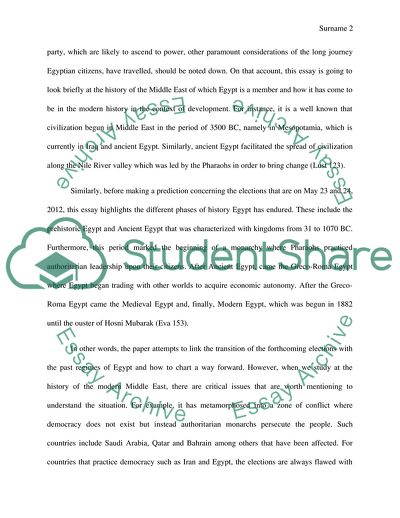Cite this document
(Perspectives of Egyptian Elections Essay Example | Topics and Well Written Essays - 1500 words - 1, n.d.)
Perspectives of Egyptian Elections Essay Example | Topics and Well Written Essays - 1500 words - 1. https://studentshare.org/politics/1770615-egyptian-elections
Perspectives of Egyptian Elections Essay Example | Topics and Well Written Essays - 1500 words - 1. https://studentshare.org/politics/1770615-egyptian-elections
(Perspectives of Egyptian Elections Essay Example | Topics and Well Written Essays - 1500 Words - 1)
Perspectives of Egyptian Elections Essay Example | Topics and Well Written Essays - 1500 Words - 1. https://studentshare.org/politics/1770615-egyptian-elections.
Perspectives of Egyptian Elections Essay Example | Topics and Well Written Essays - 1500 Words - 1. https://studentshare.org/politics/1770615-egyptian-elections.
“Perspectives of Egyptian Elections Essay Example | Topics and Well Written Essays - 1500 Words - 1”. https://studentshare.org/politics/1770615-egyptian-elections.


